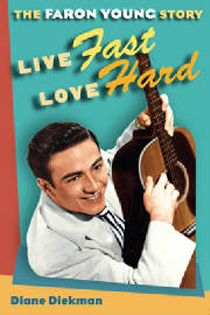
Fiction writing has not revealed itself to me as an easy gig.
I think it involves a great deal more of ME than any other form of writing. I not only craft the words, but I invest my feelings and thoughts and life into it. Woven in each bit of fiction is a piece of the author, or many pieces of the author. The cliche of opening a vein and bleeding onto the page is not unfounded. But that alone is not enough to sustain a piece of fiction no matter how short or long.
There is a factual side of fiction that people don't tell you about when spouting "Once upon a time in a little hamlet by the sea...." The author must know what a hamlet is, are they located by the sea, who lives in hamlets, what era do most hamlets reside in, and just what are the economics of such a place? Is it an impoverished fishing village or a lucrative touristy place or a bastion of old money or a health resort complete with mineral springs? And you as the author, do you have enough facts to convince the reader to suspend disbelief and follow you into your ummm hamlet?
If nothing else, a fiction writer must be knowledgeable. And it certainly doesn't hurt that they are adept at research.
Yesterday's post by Mr. Cooper gives me hope; but when I look at his bio, I get a little queasy. He's not just a writer, that is only his most current occupation. Before that he graduated from Harvard, became a doctor, ran a practice before getting into the business side of pharmaceuticals . He even majored in archaeology and went on digs.
Where I come from just accomplishing one of those things would be enough success for a lifetime. OK, where I come from a good price at the co-op on a corn and soy bean harvest is a rousing success. My point (and there is one!) is that he KNOWS things and he's trainable. Boy is he trainable. The same goes for my dear, dear Diana Gabaldon.
Before 'trying her hand' at fiction and writing the lucrative Outlander series, she was a college professor, research professor at that, had run a successful computer software business and wrote research papers, technical texts and yes even Disney comic books before bringing all of her knowledge to her fiction.
Although her books are fiction with a paranormal element, romance and history all woven into each oversized tomb, they ring with authority. She doesn't just have the main character, Claire, perform surgery to repair a hernia. She gives this hernia a medical name and then proceeds with such insightful detail that you know this author has done her homework and gotten it right. I question sometimes whether she also went to medical school. She doesn't just mention the bones of the hand she calls them by their proper medical names. And she is consistent throughout, offering not just the bare basics that everybody knows. No, she raises the content to a level where each chapter brings new opportunities to learn something. Being weak in science, I appreciate the way she uses natural laws and other scientific facts to make things real.
I will (hesitantly) admit to a background in romance reading and there is one thing that I and a whole community of readers want to take away from these reads. Yes of course we want a satisfying relationship story. And yes we like to escape. But we also want to LEARN something.
Facts, no matter what type of fiction rely heavily on getting the facts right. Great fiction teaches the reader something.
And that's the pattern I'm seeing. Fiction done right isn't about fantasy or make believe -- it is about an author sharing a truth that the reader needed to know -- whether she knew of that need or not. The more subtle the message, the better. Pound me over the head with the author's message and I'll slam the book shut. But show me the message through a character's life and you've succeeded.
Perhaps that was the appeal of Pilgrim's Progress back in the day. Or even Jonathan Swift's memorable essay "A Modest Proposal." Or even today's most read books, yes even Dan Brown. He may not have the most literary writing style, but he can tell a story, and he can throw facts into a story that sends people into a tizzy. One of the reasons I enjoy movies like "National Treasure" is because it is so strongly rooted in facts.
As a writer -- we gotta know the facts -- whether we write fiction or nonfiction. Research, knowledge, life experience are key to success. It isn't just write what you know -- it is know what you write. And give it to me in detail. Which brings another cliche to mind. But I don't think the 'devil' is in the details. I think the six figure advance is in the details.
Site of the Day: Intute helps find the best websites for study and research and much (if not all) are free.






















No comments:
Post a Comment